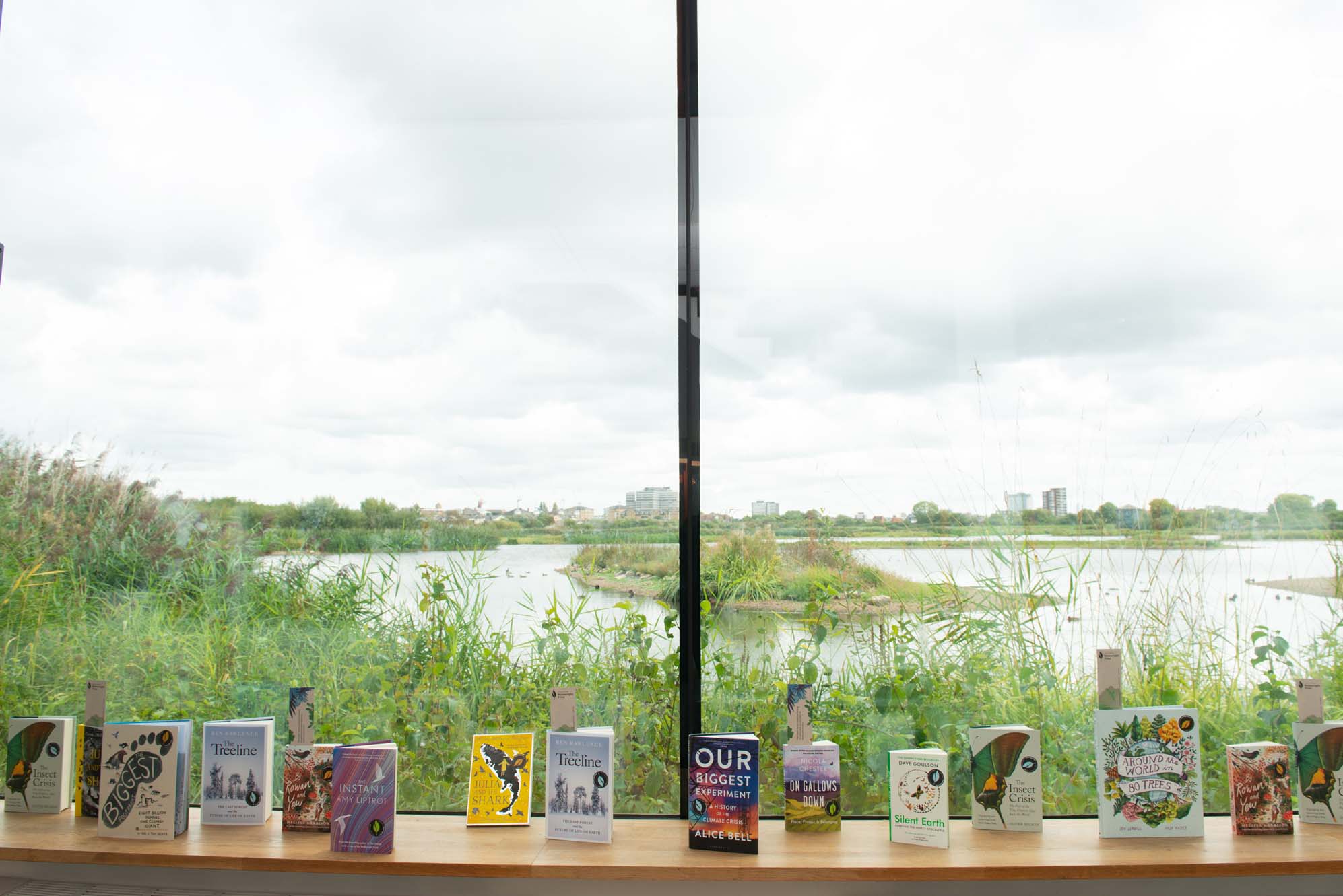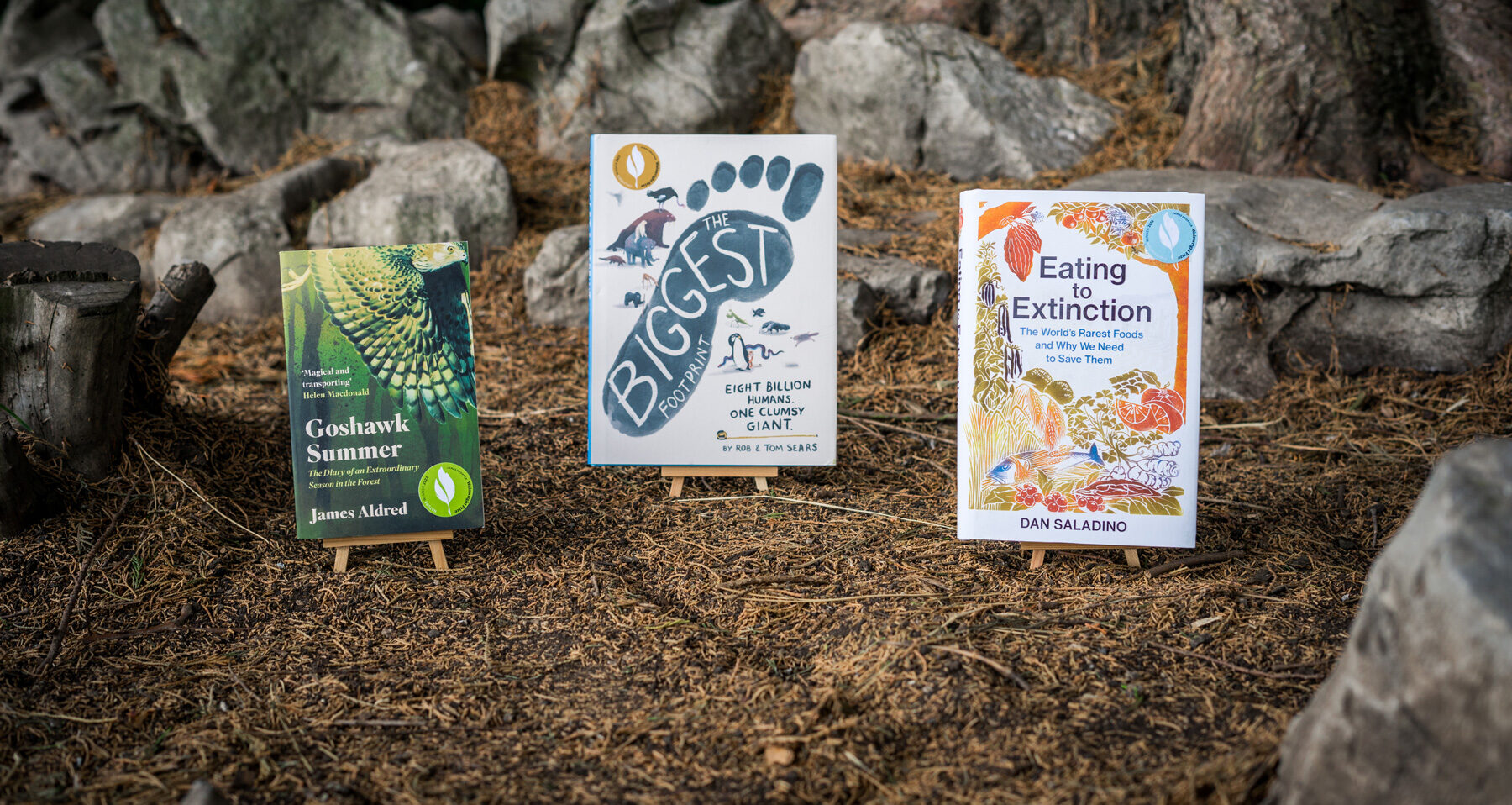Last week, the Agile team gathered at the London Wetland Centre for the greatly-anticipated James Cropper Wainwright Prize winners’ ceremony. We were surrounded by swampish lakes, inky lagoons and marshes, interwoven by an intricate network of pathways and bridges.
From the centre’s sublime glass observatory, the wetlands swelled with wildlife, homing an abundance of critters and fowl. A kingfisher sheltered in the lagoon, snipes and sandpipers were spotted amidst the reeds, wagtails warbled. We weren’t greeted by the sites’ beloved otters, but we imagined them somewhere between the murky pools and the marshes, shading in the early September sun. Between glints of sunlight and showers, the urban silhouettes of London seemed further away than their concrete whereabouts.
Against this oasis, the Prize’s shortlisted books were dotted from wall to wall, an array of illustrated hardbacks and smooth paperbacks, offering the finest nature writing 2022 had to offer. Helen Musselwhite’s intricate paper artwork was enlarged against the landscape, her delicately crafted flora and fauna at home next to the reserve. Guests arrived – illustrators, publicists, agents, friends, family, and everything in between – marvelling at the books and vista in equal measure. The observatory was abuzz with chatter and congratulations.

After the initial reception, we ambled towards the upstairs gallery, discussions and winners’ announcements ready to ensue. Chairs lined the room, ceremonial-like, and the room quieted as the Wainwright Prize director took to the stage to introduce the winners’ event. Panel discussions followed, led by each of the three categories’ respective judges – Nature Writing was headed by Ray Mears, Writing on Conservation by Farming Today’s Charlotte Smith, and the Children’s Nature and Conservation Writing category by children’s television presenter Gemma Hunt. As the judges interviewed their respective shortlisted authors and illustrators in turn, the discussions and conversations felt important and of their moment.
As the clock ticked closer to the winners’ announcement time, the room was held on edge with anticipation. The moment arrived.
Gemma Hunt awarded author-illustrator brothers Rob and Tom Sears the Children’s Writing award for their inspirational and inventive illustrated book The Biggest Footprint. With down-to-earth words and a bashful, brotherish sort of humour, the duo spoke of their project with thanks and anecdotes and took their prize. Katya Balen’s October, October was highly commended as a beautiful and emotional work that brought all the judges to tears.
Charlotte Smith took to the stage next to announce Dan Saladino as winner of the Writing on Conservation Prize for his encyclopaedic tale of human connections through food, Eating to Extinction; he accepted his artwork with heartfelt thanks and inspiring words on food, nature and stories. Lee Schofield’s Wild Fell was highly commended by the panel of judges.
Lastly, James Aldred was announced by Ray Mears as the winner of the Nature Writing Prize for the grounding and timely Goshawk Summer, to great applause. With humble gratitude, he accepted his prize – a specially commissioned artwork by Helen Musselwhite – and thanked those who had supported his endeavour. Dr Thomas Halliday’s Otherlands and Nicola Chester’s On Gallow’s Down received special congratulations as highly commended works.
Celebratory drinks and canapes followed, interviews and photos continued, and books were discussed and shared. It was a significant day for nature and conservation writing and a testament to the natural world we all share.

Learn more about the winning works here.
Privacy Policy | Terms & Conditions | Website by Milk & Tweed
| Cookie | Duration | Description |
|---|---|---|
| cookielawinfo-checkbox-analytics | 11 months | This cookie is set by GDPR Cookie Consent plugin. The cookie is used to store the user consent for the cookies in the category "Analytics". |
| cookielawinfo-checkbox-functional | 11 months | The cookie is set by GDPR cookie consent to record the user consent for the cookies in the category "Functional". |
| cookielawinfo-checkbox-necessary | 11 months | This cookie is set by GDPR Cookie Consent plugin. The cookies is used to store the user consent for the cookies in the category "Necessary". |
| cookielawinfo-checkbox-others | 11 months | This cookie is set by GDPR Cookie Consent plugin. The cookie is used to store the user consent for the cookies in the category "Other. |
| cookielawinfo-checkbox-performance | 11 months | This cookie is set by GDPR Cookie Consent plugin. The cookie is used to store the user consent for the cookies in the category "Performance". |
| viewed_cookie_policy | 11 months | The cookie is set by the GDPR Cookie Consent plugin and is used to store whether or not user has consented to the use of cookies. It does not store any personal data. |